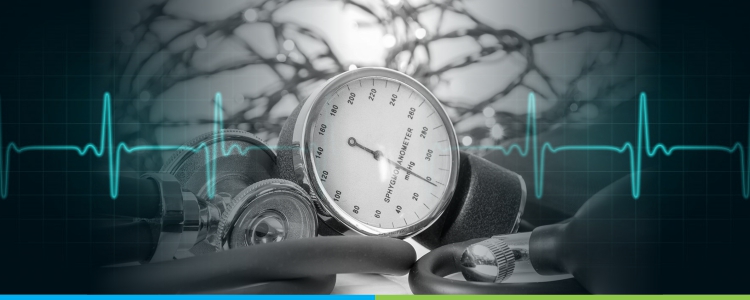Know More about Blood Pressure

What is Blood Pressure?
Blood pressure is simply the physical pressure of blood in the blood vessels. Arteries carry blood from your heart to other parts of your body.
What do the blood pressure numbers mean?
Blood pressure is measured using two numbers. The first number is called Systolic blood pressure, which measures the pressure in your arteries when your heart beats and the second number is called Diastolic blood pressure. It measures the pressure in your arteries when your heart rests between beats. When the measurement reads 120 systolic and 80 diastolic, it is said as “120/80 mmHg.”
Does blood pressure change?
Blood pressure varies from time to time, goes up and down with different normal daily activities. For example, exercise, changes in posture and even talking changes blood pressure. Blood pressure remains higher during the day than at night and higher in the winter than in the summer. In adulthood, weight and blood pressure are closely related. When weight goes up, blood pressure tends to go up and we can lower blood pressure by losing weight.
What is high blood pressure (hypertension)?
High blood pressure is also known as hypertension. The blood pressure changes throughout the day based on the person’s activity. The higher the blood pressure levels, the more is the risk for other health problems, such as heart disease, heart attack and stroke. Most doctors consider blood pressures of 140/90 and greater to be high. The exact values that doctors might interpret as high blood pressure depends to an extent on individual circumstances. For patients with diabetes, hypertension is considered by some to pressure greater than 130/80.
What are the signs and symptoms of high blood pressure?
- Severe headache
- Nosebleed
- Fatigue
- Blurred vision
- Chest pain
- Difficulty in breathing
- Irregular heartbeat
What causes high blood pressure?
The cause of high blood pressure depends on a range of factors that could be because of genetic and environmental (lifestyle) factors that work together to raise blood pressure. Some other factors are:
- Smoking
- Being overweight or obese
- Lack of physical activity
- Too much salt in the diet
- Excess alcohol consumption
- Stress
- Adrenal and thyroid disorders
- Sleep apnea
What problems does high blood pressure cause?
High blood pressure damages your health in various ways, such as it can damage important organs like your heart, brain, kidneys, and eyes. But the good part is blood pressure can be managed to lower your risk for serious health problems.
How to prevent or manage high blood pressure?
Many people with high blood pressure can lower their blood pressure into a healthy range or keep their numbers in a healthy range by making lifestyle changes. Talk with your health care team about
- Getting at least 30 minutes of physical activity every day
- Not smoking
- Eating a healthy diet, limiting salt and alcohol
- Keeping a healthy weight
- Managing stress

Dr L Venkatesh
Director & Chief Consultant Physician
OMNI Hospitals, Visakhapatnam
